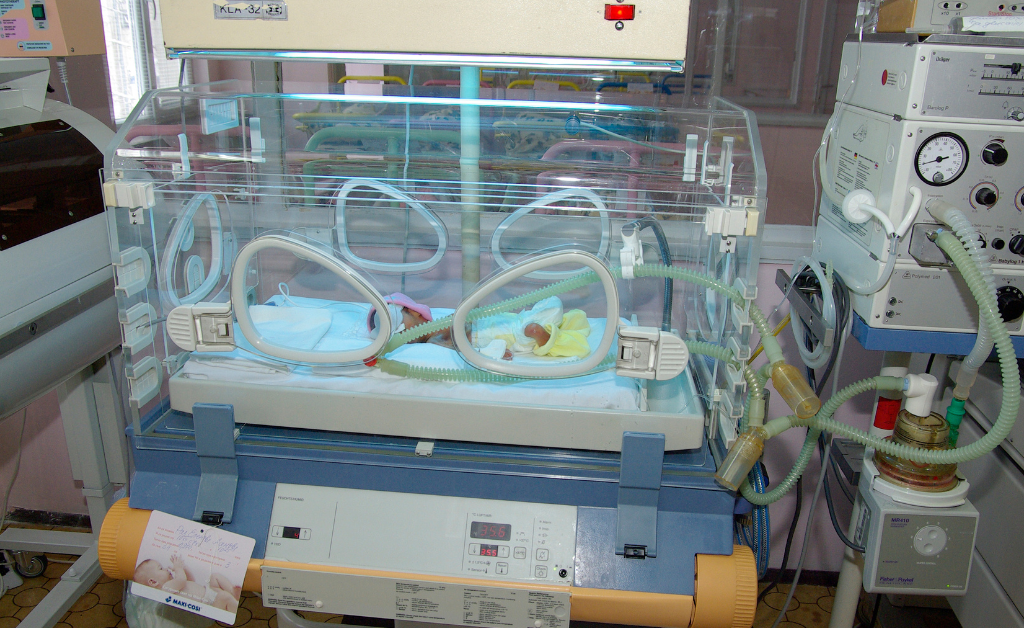Embarking on a career as a NICU (Neonatal Intensive Care Unit) travel nurse opens doors to unique opportunities and challenges. In this fast-paced and rewarding field, travel nurses play a vital role in providing specialized care to newborns in critical condition. In this article, we’ll explore the world of NICU travel nursing, including qualifications, benefits, job opportunities, and practical tips for success. Whether you’re a seasoned nurse considering a change or a recent graduate eager to start your nursing journey, join us as we delve into the exciting realm of NICU travel nurse positions.
Understanding Nicu Travel Nurse Positions

NICU travel nursing involves providing specialized care to newborns who require intensive medical attention due to prematurity, illness, or congenital conditions. Here’s a detailed overview of NICU travel nursing:
a. Role and Responsibilities: NICU travel nurses are responsible for providing comprehensive care to premature and critically ill newborns in the neonatal intensive care unit. Their duties may include monitoring vital signs, administering medications, managing ventilators, feeding assistance, and collaborating with the healthcare team to develop and implement care plans.
b. Specialized Skills and Training: NICU travel nurses possess specialized skills and training in neonatal care, including knowledge of neonatal physiology, assessment techniques, and interventions specific to premature and critically ill newborns. They undergo additional training and certifications to ensure they are equipped to provide high-quality care in a challenging environment.
c. Adaptability and Flexibility: NICU travel nurses must be adaptable and flexible, as they often work in different healthcare facilities with varying protocols, equipment, and patient populations. They quickly acclimate to new environments, establish rapport with multidisciplinary teams, and provide consistent, compassionate care to newborns and their families.
d. Patient and Family Education: In addition to providing direct patient care, NICU travel nurses play a crucial role in educating parents and caregivers about their newborn’s condition, treatment plan, and care needs. They offer emotional support, answer questions, and empower families to participate in their baby’s care journey.
e. Emotional Resilience: Working in the NICU can be emotionally challenging, as nurses care for newborns facing life-threatening conditions and families experiencing distress. NICU travel nurses demonstrate emotional resilience, compassion, and empathy as they navigate complex medical situations and support families during difficult times.
f. Travel Opportunities: One of the primary attractions of NICU travel nursing is the opportunity to work in different locations across the country. Travel nurses have the flexibility to choose assignments in various healthcare facilities, cities, and regions, allowing them to explore new places, cultures, and healthcare practices while advancing their careers.
g. Professional Growth and Development: NICU travel nursing offers ample opportunities for professional growth and development. Travel nurses gain exposure to diverse patient populations, healthcare settings, and clinical challenges, enhancing their clinical skills, critical thinking abilities, and cultural competence.
h. Work-Life Balance: Despite the demands of the job, NICU travel nurses strive to maintain a healthy work-life balance. They schedule assignments according to their preferences and priorities, allowing for time off between contracts to rest, recharge, and pursue personal interests.
i. Impact and Fulfillment: NICU travel nurses find fulfillment in making a meaningful difference in the lives of newborns and their families. They witness miracles and milestones as babies grow stronger and thrive under their care, fostering a sense of purpose and satisfaction in their nursing practice.
Understanding the unique role and responsibilities of NICU travel nursing prepares nurses for a rewarding and impactful career in this specialized field. As we delve further into NICU travel nursing, we’ll explore qualifications, benefits, job opportunities, and practical tips for success in this dynamic and challenging profession.
Qualifications and Requirements for Nicu Travel Nurse Positions
Becoming a NICU travel nurse requires a combination of education, experience, and specialized training. Here’s a detailed look at the qualifications and requirements for aspiring NICU travel nurses:
a. Nursing Education: The first step to becoming a NICU travel nurse is to obtain a nursing degree from an accredited nursing program. Most NICU travel nurses hold either an Associate Degree in Nursing (ADN) or a Bachelor of Science in Nursing (BSN) degree. Some employers may prefer or require a BSN for travel nursing positions.
b. Licensure: All NICU travel nurses must hold a valid Registered Nurse (RN) license in the state or states where they plan to practice. Licensure requirements vary by state but typically involve passing the National Council Licensure Examination for Registered Nurses (NCLEX-RN) and meeting other state-specific requirements for licensure.
c. Clinical Experience: Prior clinical experience in neonatal nursing is essential for NICU travel nurses. Most travel nursing agencies require a minimum of one to two years of recent experience working in a neonatal intensive care unit (NICU) or a similar acute care setting. Experience in critical care, pediatrics, or maternal-child health may also be beneficial.
d. Certifications: Many NICU travel nursing positions require specialized certifications in neonatal nursing. The Neonatal Resuscitation Program (NRP) certification is commonly required for NICU nurses, as it demonstrates competency in managing neonatal emergencies and resuscitation. Other certifications, such as the Neonatal Intensive Care Nursing (RNC-NIC) certification, may also be preferred or required by employers.
e. Basic Life Support (BLS) Certification: NICU travel nurses must maintain current Basic Life Support (BLS) certification, which certifies proficiency in cardiopulmonary resuscitation (CPR) and basic life-saving techniques. Some employers may also require Advanced Cardiac Life Support (ACLS) certification for NICU nurses working in specialized units.
f. Strong Clinical Skills: NICU travel nurses must possess strong clinical skills, including proficiency in neonatal assessment, medication administration, ventilator management, and intravenous therapy. They should be skilled in performing critical procedures such as intubation, chest tube insertion, and central line placement, as well as providing comprehensive care to critically ill newborns.
g. Excellent Communication and Interpersonal Skills: Effective communication and interpersonal skills are essential for NICU travel nurses, as they collaborate closely with multidisciplinary teams, interact with patients and families, and provide education and support during challenging times. Nurses must demonstrate empathy, compassion, and cultural sensitivity in their interactions with diverse patient populations and healthcare professionals.
h. Adaptability and Flexibility: NICU travel nurses must be adaptable and flexible, as they often work in different healthcare facilities with varying policies, procedures, and patient populations. They should be able to quickly acclimate to new environments, learn new protocols, and work effectively as part of a team in a fast-paced and dynamic setting.
i. Commitment to Continuing Education: As the field of neonatal nursing evolves, NICU travel nurses must commit to ongoing professional development and continuing education. Staying abreast of the latest evidence-based practices, advancements in neonatal care, and updates in healthcare regulations ensures nurses provide the highest quality care to their patients.
Meeting these qualifications and requirements prepares aspiring NICU travel nurses for success in this challenging and rewarding profession. As we explore further, we’ll discuss the benefits of NICU travel nursing, job opportunities, and practical tips for navigating this dynamic career path.
Benefits of Nicu Travel Nurse Positions
NICU travel nursing offers numerous benefits and opportunities for nurses seeking a dynamic and rewarding career. Here’s a detailed overview of the benefits associated with NICU travel nursing:
a. Professional Growth and Development: NICU travel nursing provides ample opportunities for professional growth and development. Travel nurses gain exposure to diverse patient populations, healthcare settings, and clinical challenges, enhancing their clinical skills, critical thinking abilities, and cultural competence.
b. Competitive Compensation: NICU travel nurses typically receive competitive compensation packages that include base pay, housing stipends or provided housing, travel reimbursements, and additional incentives such as sign-on bonuses or completion bonuses. Travel nursing agencies often offer higher pay rates for specialized nursing positions like NICU nursing.
c. Flexible Scheduling: One of the key benefits of NICU travel nursing is the flexibility to choose assignments based on personal preferences and priorities. Travel nurses have the freedom to select assignments in different locations, healthcare facilities, and contract lengths, allowing for greater control over their work schedules and lifestyle.
d. Travel Opportunities: NICU travel nursing offers the opportunity to explore new places, cultures, and healthcare practices while advancing one’s nursing career. Travel nurses have the flexibility to work in various cities, states, and regions across the country, experiencing different healthcare environments and clinical settings.
e. Enhanced Resume and Skillset: Working as a NICU travel nurse enhances one’s resume and skillset, making nurses highly sought after by employers in the healthcare industry. The diverse experiences gained through travel nursing demonstrate adaptability, versatility, and proficiency in providing high-quality patient care.
f. Exposure to Cutting-Edge Technology: NICU travel nurses have access to state-of-the-art medical equipment and technology in leading healthcare facilities. They gain experience working with advanced neonatal monitoring systems, ventilators, incubators, and other specialized equipment, staying at the forefront of neonatal care advancements.
g. Networking Opportunities: Travel nursing allows nurses to build professional networks and connections with healthcare professionals across different facilities and regions. Networking with colleagues, physicians, and healthcare administrators can lead to future job opportunities, career advancement, and mentorship in the field of neonatal nursing.
h. Personal Fulfillment: Working in the NICU as a travel nurse offers personal fulfillment and satisfaction as nurses make a positive impact on the lives of newborns and their families. Witnessing the resilience and progress of premature and critically ill infants brings a sense of purpose and fulfillment to the nursing profession.
i. Work-Life Balance: Despite the demands of the job, NICU travel nurses strive to maintain a healthy work-life balance. They have the flexibility to schedule assignments according to their preferences, allowing for time off between contracts to rest, recharge, and pursue personal interests outside of work.
j. Adventure and Exploration: NICU travel nursing provides opportunities for adventure and exploration as nurses embark on assignments in new cities and regions. Whether exploring local attractions, trying new cuisines, or immersing oneself in different cultures, travel nurses enjoy unique experiences and adventures during their assignments.
Overall, NICU travel nursing offers a rewarding and enriching career path for nurses seeking professional growth, competitive compensation, flexibility, and personal fulfillment. As we delve deeper into NICU travel nursing, we’ll discuss practical tips for finding positions, navigating contract negotiations, and managing finances while on assignment.
Finding NICU Travel Nurse Positions
Finding NICU travel nurse positions requires a strategic approach and familiarity with the travel nursing industry. Here’s a detailed guide on how to find NICU travel nurse positions:
a. Research Travel Nursing Agencies: Start by researching reputable travel nursing agencies that specialize in placing nurses in NICU assignments. Look for agencies with a strong track record of placing nurses in neonatal intensive care units (NICUs) and positive reviews from travel nurses.
b. Utilize Online Job Boards: Explore online job boards dedicated to travel nursing opportunities, such as TravelNurseSource, NurseFly, and Healthcare Traveler. These platforms allow nurses to search for NICU travel nurse positions by location, specialty, and contract length, and apply directly to open positions.
c. Network with Peers: Networking with fellow nurses, especially those with experience in NICU travel nursing, can be invaluable in finding job opportunities. Attend nursing conferences, join online forums and social media groups for travel nurses, and connect with peers who can provide insights, recommendations, and job leads.
d. Contact Healthcare Facilities Directly: Reach out to healthcare facilities directly to inquire about NICU travel nurse positions. Many hospitals and medical centers work with travel nursing agencies to fill temporary staffing needs in their NICUs and may welcome inquiries from qualified nurses.
e. Work with Multiple Agencies: Consider working with multiple travel nursing agencies to increase your chances of finding NICU travel nurse positions that match your preferences and qualifications. By registering with multiple agencies, you’ll have access to a broader range of job opportunities and contract options.
f. Customize Your Resume and Cover Letter: Tailor your resume and cover letter to highlight your experience, skills, and certifications relevant to NICU nursing. Emphasize your experience working with premature and critically ill newborns, proficiency in neonatal assessment and interventions, and any specialized certifications you hold, such as NRP or RNC-NIC.
g. Be Flexible with Location and Assignment Length: Flexibility is key when searching for NICU travel nurse positions. Consider expanding your search to include multiple locations and be open to different contract lengths, including short-term assignments, extended contracts, and crisis response opportunities.
h. Attend Virtual Job Fairs: Take advantage of virtual job fairs and recruitment events hosted by travel nursing agencies and healthcare facilities. These events provide opportunities to connect with recruiters, learn about available NICU travel nurse positions, and interview for potential assignments from the comfort of your home.
i. Follow Up on Applications: After submitting applications or expressing interest in NICU travel nurse positions, be proactive about following up with recruiters or hiring managers. Sending a polite follow-up email or making a phone call to inquire about the status of your application can demonstrate your enthusiasm and commitment to securing a position.
j. Stay Persistent and Patient: Finding the right NICU travel nurse position may take time and persistence. Stay patient and persistent in your job search, continue networking with peers and recruiters, and remain open to new opportunities that may arise along the way.
Navigating Contract Negotiations

Navigating contract negotiations is a crucial aspect of securing NICU travel nurse positions and ensuring favorable terms and conditions. Here’s a detailed guide on navigating contract negotiations effectively:
a. Understand Contract Terms: Before entering negotiations, carefully review the contract terms and conditions provided by the travel nursing agency or healthcare facility. Pay attention to key details such as assignment duration, work schedule, pay rate, housing arrangements, benefits, and any additional perks or incentives.
b. Clarify Expectations: Clarify expectations with the staffing agency or employer regarding job responsibilities, patient load, shift requirements, and any special considerations specific to NICU nursing. Ensure alignment between your expectations and what the employer can offer to avoid misunderstandings later on.
c. Negotiate Pay and Benefits: Advocate for competitive pay rates and comprehensive benefits packages that align with industry standards and your level of experience. Negotiate for additional incentives such as sign-on bonuses, completion bonuses, travel reimbursements, and housing stipends to maximize your compensation package.
d. Discuss Housing Arrangements: Housing is a significant consideration for travel nurses, especially when relocating for assignments. Discuss housing arrangements with the staffing agency or employer, and negotiate for provided housing or housing stipends that meet your preferences and budgetary constraints.
e. Flexibility in Scheduling: Negotiate for flexibility in scheduling to accommodate personal preferences, time off between assignments, and work-life balance. Discuss options for shift preferences, guaranteed hours, and opportunities for extended breaks or vacations during and between assignments.
f. Request Professional Development Opportunities: Advocate for professional development opportunities such as continuing education courses, certifications, and training programs that enhance your skills and advance your career as a NICU travel nurse. Negotiate for opportunities to attend conferences, workshops, and seminars relevant to neonatal nursing.
g. Seek Clarification on Contractual Obligations: Seek clarification on contractual obligations, including terms related to contract extensions, cancellations, and early termination. Understand the consequences of breaching the contract and any financial penalties or repercussions that may apply.
h. Address Concerns and Negotiate Amendments: If you have concerns or reservations about specific contract terms, address them with the staffing agency or employer and negotiate amendments to the contract as needed. Be proactive in advocating for your interests and ensuring that the contract reflects mutually acceptable terms and conditions.
i. Document Agreements in Writing: Once negotiations are complete, ensure that all agreements reached during negotiations are documented in writing and incorporated into the final contract. Review the contract carefully before signing to confirm that it accurately reflects the negotiated terms and conditions.
j. Seek Legal Advice if Necessary: If you encounter complex contract issues or legal concerns during negotiations, consider seeking advice from a legal professional or contract attorney specializing in healthcare contracts. Legal guidance can help protect your rights and interests as a NICU travel nurse.
Housing Options for Nicu Travel Nurse Positions

Securing suitable housing is a critical aspect of the NICU travel nursing experience. Here’s a detailed exploration of the housing options available to NICU travel nurses:
a. Agency-Provided Housing: Many travel nursing agencies offer agency-provided housing as part of the compensation package. Agency-provided housing typically includes fully furnished accommodations located near the healthcare facility where the nurse is assigned. This option offers convenience and eliminates the hassle of finding housing independently.
b. Housing Stipend: Alternatively, travel nurses may opt to receive a housing stipend instead of agency-provided housing. The housing stipend is a tax-free allowance intended to cover housing-related expenses such as rent, utilities, and furnishings. Travel nurses have the flexibility to choose their own housing arrangements and pocket any leftover funds from the stipend.
c. Extended-Stay Hotels: Some NICU travel nurses prefer the convenience and flexibility of staying in extended-stay hotels during their assignments. Extended-stay hotels offer suite-style accommodations with kitchenettes, amenities such as complimentary breakfast, Wi-Fi, and on-site laundry facilities. This option provides a comfortable and temporary housing solution for short-term assignments.
d. Short-Term Rentals: Renting a furnished apartment, condo, or house on a short-term basis is another popular housing option for NICU travel nurses. Websites and platforms such as Airbnb, Furnished Finder, and Craigslist offer listings for short-term rentals tailored to the needs of travel healthcare professionals. Renting a private residence allows nurses to enjoy the comforts of home away from home.
e. Roommate Arrangements: Some NICU travel nurses choose to share housing expenses by arranging roommate situations with other travel nurses or healthcare professionals. Sharing accommodations can help reduce housing costs and foster camaraderie and social connections among travel nurses. Websites and social media groups dedicated to travel nursing often facilitate roommate matching services.
f. Commuting from Home: In some cases, NICU travel nurses may opt to commute from their permanent residence to the assignment location. This option is feasible for travel nurses whose assignments are within a reasonable commuting distance from home. However, commuting may not be practical for assignments located far from home or in areas with limited housing options.
g. Considerations for Housing Selection: When selecting housing accommodations, NICU travel nurses should consider factors such as location, safety, proximity to the healthcare facility, amenities, lease terms, and cost of living. Researching housing options thoroughly and visiting properties or conducting virtual tours can help nurses make informed decisions about housing selection.
h. Budgeting and Financial Planning: Regardless of the housing option chosen, NICU travel nurses should budget and plan for housing-related expenses carefully. Housing costs may vary depending on the assignment location, seasonality, and housing market conditions. Nurses should factor housing expenses into their overall budget and ensure they can afford the chosen housing arrangement comfortably.
i. Housing Assistance Resources: Travel nursing agencies and online platforms often provide resources and assistance to help travel nurses secure housing accommodations. Agencies may offer housing coordinators or relocation specialists who assist nurses with housing search, lease negotiation, and relocation logistics, alleviating some of the stress associated with finding housing independently.
j. Flexibility and Adaptability: Flexibility and adaptability are essential qualities for NICU travel nurses when it comes to housing arrangements. Nurses should be open to different housing options and prepared to adjust their living arrangements based on assignment locations, duration, and personal preferences. Maintaining a positive attitude and embracing the adventure of travel nursing can enhance the overall housing experience.
In conclusion, NICU travel nursing presents a unique opportunity for nurses to make a profound impact on the lives of premature and critically ill newborns while experiencing the excitement of travel and professional growth.
Through specialized training, flexible scheduling, competitive compensation, and personal fulfillment, NICU travel nurses navigate a dynamic and rewarding career path.
By understanding the qualifications, benefits, and practical considerations associated with NICU travel nursing, nurses can embark on a fulfilling journey that combines their passion for neonatal care with the adventure of travel. As the demand for skilled NICU nurses continues to grow, the opportunities for travel nursing in this specialty offer a fulfilling and enriching career path for nurses seeking a dynamic and rewarding profession.
